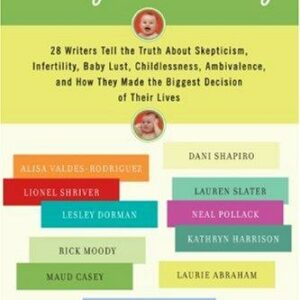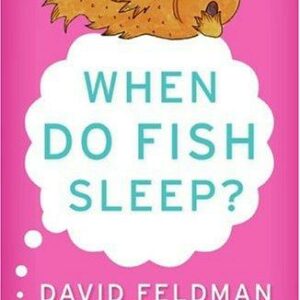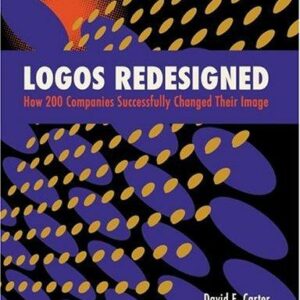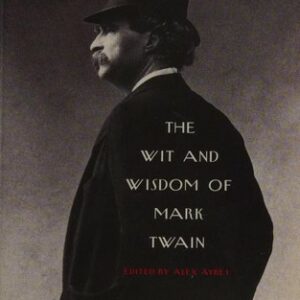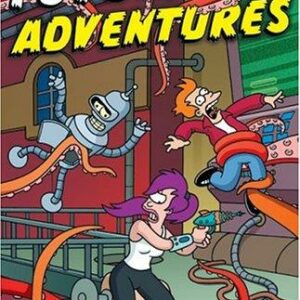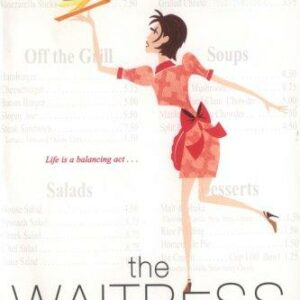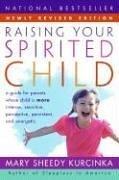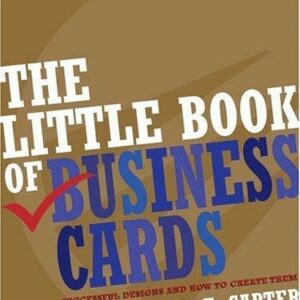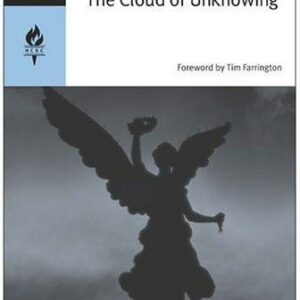Little Failure
$18.00
| Title | Range | Discount |
|---|---|---|
| Trade Discount | 5 + | 25% |
- Description
- Additional information
Description
NEW YORK TIMES BESTSELLER • NATIONAL BOOK CRITICS CIRCLE AWARD FINALIST
NAMED ONE OF THE TEN BEST BOOKS OF THE YEAR BY MICHIKO KAKUTANI, THE NEW YORK TIMES • NAMED ONE OF THE TEN BEST NONFICTION BOOKS OF THE YEAR BY TIME
NAMED ONE OF THE BEST BOOKS OF THE YEAR BY MORE THAN 45 PUBLICATIONS, INCLUDING
The New York Times Book Review • The Washington Post • NPR • The New Yorker • San Francisco Chronicle • The Economist • The Atlantic • Newsday • Salon • St. Louis Post-Dispatch • The Guardian • Esquire (UK) • GQ (UK)
Little Failure is the all too true story of an immigrant family betting its future on America, as told by a lifelong misfit who finally finds a place for himself in the world through books and words. In 1979, a little boy dragging a ginormous fur hat and an overcoat made from the skin of some Soviet woodland creature steps off the plane at New York’s JFK International Airport and into his new American life. His troubles are just beginning. For the former Igor Shteyngart, coming to the United States from the Soviet Union is like stumbling off a monochromatic cliff and landing in a pool of Technicolor. Careening between his Soviet home life and his American aspirations, he finds himself living in two contradictory worlds, wishing for a real home in one. He becomes so strange to his parents that his mother stops bickering with his father long enough to coin the phrase failurchka—“little failure”—which she applies to her once-promising son. With affection. Mostly. From the terrors of Hebrew School to a crash course in first love to a return visit to the homeland that is no longer home, Gary Shteyngart has crafted a ruthlessly brave and funny memoir of searching for every kind of love—family, romantic, and of the self.
Praise for Little Failure
“Hilarious and moving . . . The army of readers who love Gary Shteyngart is about to get bigger.”—The New York Times Book Review
“A memoir for the ages . . . brilliant and unflinching.”—Mary Karr
“Dazzling . . . a rich, nuanced memoir . . . It’s an immigrant story, a coming-of-age story, a becoming-a-writer story, and a becoming-a-mensch story, and in all these ways it is, unambivalently, a success.”—Meg Wolitzer, NPR
“Literary gold . . . [a] bruisingly funny memoir.”—Vogue
“A giant success.”—Entertainment Weekly
“[Little Failure] finds the delicate balance between sidesplitting and heartbreaking.”—O: The Oprah Magazine
“Should become a classic of the immigrant narrative genre.”—The Miami Herald
“As vivid, original and funny as any that contemporary U.S. literature has to offer.”—Los Angeles Times
“The very best memoirs perfectly toe the line between heartbreak and humor, and Shteyngart does just that.”—Esquire
“Touching, insightful . . . [Shteyngart] nimbly achieves the noble Nabokovian goal of letting sentiment in without ever becoming sentimental.”—The Washington Post
“[Shteyngart is] a successor to no less than Saul Bellow and Philip Roth.”—The Christian Science Monitor
“Hilarious and moving . . . The army of readers who love Gary Shteyngart is about to get bigger.”—The New York Times Book Review
“A memoir for the ages . . . brilliant and unflinching.”—Mary Karr
“Dazzling . . . a rich, nuanced memoir . . . It’s an immigrant story, a coming-of-age story, a becoming-a-writer story, and a becoming-a-mensch story, and in all these ways it is, unambivalently, a success.”—Meg Wolitzer, NPR
“Literary gold . . . [a] bruisingly funny memoir.”—Vogue
“Funny, unflinching, and, title notwithstanding, a giant success . . . The innate humor of Shteyngart’s storytelling is dotted with touching sadness, all of it amounting to an engrossing look at his distinct, multilayered Gary-ness.”—Entertainment Weekly
“[Little Failure] finds the delicate balance between sidesplitting and heartbreaking.”—O: The Oprah Magazine
“An ecstatic depiction of survival, guilt and perseverance . . . Russia gave birth to that master of English-language prose named Vladimir Nabokov. Half a century later, another writer who grew up with Cyrillic characters is gleefully writing American English as vivid, original and funny as any that contemporary U.S. literature has to offer.”—Los Angeles Times
“The very best memoirs perfectly toe the line between heartbreak and humor, and Shteyngart does just that.”—Esquire
“Touching, insightful . . . [Shteyngart] nimbly achieves the noble Nabokovian goal of letting sentiment in without ever becoming sentimental.”—The Washington Post
“[Shteyngart is] a successor to no less than Saul Bellow and Philip Roth.”—The Christian Science Monitor
“Moving . . . and laugh-out-loud funny.”—USA Today
“Might just be the funniest, most unflinching memoir ever about coming to America.”—W Magazine
“Hilarious . . . an affectionate take on growing up in gray Leningrad and Technicolor Queens.”—People
“[Little Failure] feels essential, as the document of a way of life that’s less and less accessible in our parenting-manual era. Shteyngart was the child of Russian immigrants whose overzealous attention shaped him, for better and worse. Little Failure helps us understand Shteyngart better, but you don’t need to have read any of his novels to appreciate his frankness and insight.”—Time
“A deeply moving love letter to Mr. Shteyngart’s life and everything in it: America, Russia, literature, women and his parents.”—The Economist
“Little Failure is terrific—the author’s funniest, saddest and most honest work to date. [It’s] a powerful and often moving portrait of a troubled man’s creative origins, comparable in intent (and sometimes in quality) to some of the genre’s high-water marks, and owing particular debts to W. G. Sebald, Thomas Bernhard and, most significantly, Vladimir Nabokov, whose name Shteyngart often invokes.”—The Guardian (UK)
“[A] keenly observed tale of exile, coming-of-age and family love: It’s raw, comic and deeply affecting, a testament to Mr. Shteyngart’s abilities to write with both self-mocking humor and introspective wisdom, sharp-edged sarcasm and aching—and yes, Chekhovian—tenderness.”—Michiko Kakutani, The New York Times
“What a beautiful mess! . . . [Shteyngart has] not just his own distinct identity, but all the loose ends and unresolved contradictions out of which great literature is made.” —Charles Simic, The New York Review of Books
“Shteyngart is a great writer—there’s no arguing his literary merit—but he’s also very, very funny, which is a rare quality in literature these days.”—GQ
“Shteyngart’s achingly honest, bittersweet comic memoir is a winner.”—Vanity Fair
“Little Failure . . . puts the lure in failure.”—The Wall Street Journal
“A near-perfect account of the churning state of one man’s inner life.”—The Sunday Times (London)
“[Shteyngart is] the Chekhov-Roth-Apatow of Queens.”—The Millions
“Surely some enterprising scholar is already gnawing at the question of why two of the brilliant outliers of American writing were Russian immigrants. One, of course, was the great Vladimir Nabokov. The other is the youngish Shteyngart. They both have the qualities of sly humor, secret griefs.”—San Francisco Chronicle
“Funny, heartbreaking and soul-baring . . . [Shteyngart is] one of his generation’s most original and exhilarating writers.”—The Seattle Times
“[A] stellar memoir.”—Parade
“[Shteyngart] has dismantled the armor of his humor to give readers his most tender and affecting gift yet: himself.”—The Boston Globe
“[Shteyngart’s] irrepressible humor disguises a Nabokovian love of the English language and an astute grasp of human psychology.”—Newsweek
“Shteyngart uses his immigrant experience, together with some of the wisdom of Russia’s cultural past, to capture a generation of middle-class Americans . . . and give us a beautifully rendered world of orange-coloured cheese puffs and Cold War menace.”—The Times Literary Supplement
“If you thought his fiction was funny, read Shteyngart’s memoir, Little Failure. As you might expect, he’s no less neurotic than his characters.”—New York
“Frenetically funny, even overwhelmingly enjoyable.”—Financial Times
“[Little Failure] should become a classic of the immigrant narrative genre.”—The Miami Herald
“There is no better comic writer alive than Mr. Shteyngart. . . . And yet it’s [his] past, and the tension it creates with the cushy interior life that America affords, that makes him a much more interesting novelist than his American peers.”—The New York Observer
“Ever wonder how a Russian émigré with a wicked sense of humor becomes a great American novelist? In his new memoir, Gary Shteyngart tells his craziest, funniest, super-saddest tale yet: his own.”—Francine Prose, Interview
“[Shteyngart’s] best work to date.”—The Moscow Times
“Shteyngart seems to have made a deal with some minor devil (a daredevil?) stipulating that if he exposed every crack and fissure in himself, laid bare every misstep, f***up, and psychic flaw, his memoir would be a deep and original book. If so, the payoff here was absolutely worth it.”—Kate Christensen, Bookforum
“By turns naive and cynical, hyper-intelligent and comically immature, empathetic on the page and unfeeling off it, his self-portrait of a Soviet Jew transplanted aged seven from Leningrad to Eighties America is a masterpiece of comic deprecation.”—The Telegraph (UK)
“This Shteyngart, sad and longing and desperate for connection (with his parents, with his readers), seems the most fully human person this author has ever created.”—The Jewish Daily Forward
“The best memoirs are ones that are perfectly individuated, particular—and yet somehow speak to every reader’s life, every reader’s family. This is one of those rare books.”—New Statesman
“Many, many people in this world have received blurbs from Gary Shteyngart, but I happen not to be one of them. So you can trust me when I say: Little Failure is a delight.”—Zadie Smith, New York Times bestselling author of NW and White Teeth
“Little Failure is told with fearlessness, wisdom and the wit that you’d expect from one of America’s funniest novelists.”—Carl Hiaasen, New York Times bestselling author of Bad Monkey
“Portnoy meets Chekhov meets Shteyngart! What could be better?”—Adam Gopnik, New York Times bestselling author of The Table Comes First and Paris to the Moon
“If you, like me, have often wondered, ‘How did Gary Shteyngart get like that?,’ Little Failure is the heartfelt, moving, and truly engaging memoir that explains it all. Dr. Freud would be proud.”—Nathan Englander, author of What We Talk About When We Talk About Anne FrankGary Shteyngart is the New York Times bestselling author of the memoir Little Failure (a National Book Critics Circle Award finalist) and the novels Super Sad True Love Story (winner of the Bollinger Everyman Wodehouse Prize), Absurdistan, and The Russian Debutante’s Handbook (winner of the Stephen Crane Award for First Fiction and the National Jewish Book Award for Fiction). His books regularly appear on best-of lists around the world and have been published in thirty countries.The Examined Life by Gary Shteyngart
“Why did you decide to write a memoir now?”
I’m often asked. As in, “Why not wait until you’re completely gray?” They’re talking about my relatively young age—this memoir, Little Failure, was published when I was forty-one; I always respond that forty-one is actually seventy-four in Russian years, a joke I make while clutching my beleaguered, butter-slathered heart.
But there are other reasons I decided to write Little Failure right after hopping onto the daisy path of middle age. My alcohol-and drug-related hijinks at Oberlin College notwithstanding, I can still recall in shocking high definition my strange Lenin-loving childhood in the Soviet Union—we left that country before I turned seven—and my early Reagan-loving years in the United States. The facts of my crappy Cold War existence—my parents’ doting but harsh child-rearing, the cries of “Commie!” from Queens yeshiva kids—are still potent enough to quash the sentimentality I might indulge in as an older memoirist. Sure, I hunger for youth, but not for that youth.
It is no coincidence that I began Little Failure just before becoming a father myself. Our sweet American boy was born just before my book’s publication. In writing it, I wanted to remember the best of my parents, but also to remind myself that my past did not have to be my son’s. Still, the truth is, my parents made me who I am. By the time I was nine, my father had already taught me the meaning of satire. And the mega-immigrant work ethic I inherited from my mother kept me typing away on my first novel even through the pot haze of college, when I could have been spending my time enjoying the rather frightening coed showers.
Through my teens and twenties and early thirties, I bore my parents a small but ever-percolating grudge. Like many immigrant children, I had wished them to be American parents: supportive of my writing, light on criticism of my life choices, and open-walleted. The term “little failure” was first spoken by my mother in my hundred-square-foot, water-bug-friendly Lower East Side hovel, after I informed her that I was not going to law school but would instead try to be a writer. She took one look around my apartment, which would have been considered pathetic even in the lousiest quarter of Minsk, and proclaimed: “Failurchka.”
Failurchka is how I always felt before them. “Ne kritikuete menya!” I would scream, an incorrect Russian version of “Stop criticizing me!” But how could they? It was what they knew. When I was writing Little Failure, though, something unexpected happened: My anger and incomprehension toward my parents turned to sadness—for them, for what their lives had been and hadn’t had the chance to be. My father’s first memories: hiding under the carriage of an evacuee train being bombed by the Luftwaffe; his cousin, pursued by hungry rats, jumping out of a window; and, worst of all, at age five, being told that his father had been killed during the Siege of Leningrad. When the war is over, there’s my father hiding beneath the couch, singing opera while daydreaming of going back in time to kill Hitler, thereby saving his own father’s life. And there’s my mother in the present day, constrained by fears and anxieties I could never understand, with her World War II–era photo album labeled “Uncle Simon, Wife, Murdered Children.” No Cape Cod vacation Polaroids for her.
So what could my parents make of my all-American fantasies of becoming a writer? (“But what kind of profession is this, writer?”) And until I began writing my memoir, how could I truly understand them?
Which leads to the first question a memoirist must ask: What should I hold back? Whatever one writes, and however crackerjack one’s memory, memoir is by definition an intrusion into the privacy of others. In this book I quote the poet Czesław Miłosz: “When a writer is born into a family, the family is finished,” perhaps overstating the case in a typically Eastern European way. Or not. My two favorite memoirs—Vladimir Nabokov’s Speak, Memory (Speak, Memory, published in 1951, bore that title initially only in the United Kingdom. It was titled Conclusive Evidence in the United States and Drugie Berega [Other Shores] in Nabokov’s native Russian) and Mary Karr’s The Liars’ Club—are as different as can be. The first is a celebration of a family whose world falls apart; the second, the story of a family that itself falls apart.
In the end, I held back almost nothing. I wanted to write with all the sickening honesty that could be brought to bear upon the subject. My parents raised me Russian in America, in the tried-and-true immigrant way, and I realized that, to American eyes and ears, the belittlement and the thwacks on the head I endured would come across as injustices. But to most readers from my background, they would be just the familiar artifacts of our cross-cultural reality.
Eventually, my parents reconciled themselves to my career, and now they are proud of me. The actor Oliver Platt, introducing me at a reading in New York, called my memoir “a difficult love letter to your parents,” and that is exactly how I hoped it would be read. Because without the difficult part there can be no love, only blind adoration and obedience, a commandment instructing one to “love thy parents.” The real, uncoerced love is bumpy, painful, and often unwieldy. It is too big for this essay. It is too big even for a book titled Little Failure.
Originally published in the July 2014 issue of O: The Oprah Magazine
1. What do you make of Gary’s dedication? If you wrote a memoir, would you dedicate it to your shrink as well?
2. Why does the book begin where it does? Discuss the importance of the Chesme Church for Gary. Was there a building in your childhood that messed up your life forever?
3. Little Failure is sprinkled with non-English words. Do you think immigrants like Gary should just stick to English and basta with the foreign words already? Try to use some of your newly learned Russian curse words with a Russian speaker. Discuss what happens next.
4. Gary was born in 1972. Do you think he’s too young to write a memoir? Why should only old people and former astronauts be allowed to write memoirs?
5. Did the photos change your reading experience or how you were imagining Gary and his family? Is he more or less geeky than you would picture him from his words alone? Would you have taken Gary to your senior prom? Discuss why not.
6. Did reading this book change the way you view Gary’s novels? Is it easier or harder to laugh at misfortune when you know it actually happened?
7. Can you imagine how Gary’s life might have been different without his early passion for writing? Try to imagine Gary as a very unsuccessful lawyer you meet at a bar. What would you say to him if he put his arm on your shoulder?
8. Gary’s relationship with his grandmother is one of the most loving and uncomplicated in the book. Why are grandparents always so great and parents always so difficult?
9. Food carries a lot of literal and symbolic weight for Gary. What food in your life has the most emotional baggage? As an exercise, try eating a pound of farmer’s cheese covered in canned peaches. How do you feel? Not so good, right?
10. How and when did your family come to the United States? Why didn’t any of them write a memoir? It’s not that hard. Maybe they were too busy actually working.
11. Gary describes his family’s life in Queens as “middle-middle-middle class.” Do you agree? In what ways did you see the American
class system affect the Shteyngarts? Why do immigrant parents often hold conservative views while their kids are raging secular progressives?
12. Was there a specific moment in the book when you felt that Gary truly assimilated as an American? Feel free to send Gary a hamburger care of his publisher if you think that’ll help.
13. Have Gary’s parents achieved the American dream? Has Gary? Have you?
14. Discuss some of the larger forces at play in Little Failure: Judaism, psychoanalysis, drugs and alcohol. Which one worked out best for Gary?
15. Gary seems to have found a way to make peace with his parents—as a reader, were you able to accept them, flaws and all, as well? Come to think of it, were you able to accept Gary?
16. What did the return trip to Russia do for the Shteyngarts, for Gary, and for the book as a whole? Should one try to dig up one’s own past or just sail ahead blindly into the future blasting eighties rock into one’s eardrums in an attempt to block out the pain?
1.
The Church and the Helicopter
A year after graduating college, I worked downtown in the immense shadows of the World Trade Center, and as part of my freewheeling, four-hour daily lunch break I would eat and drink my way past these two giants, up Broadway, down Fulton Street, and over to the Strand Book Annex. In 1996, people still read books and the city could support an extra branch of the legendary Strand in the Financial District, which is to say that stockbrokers, secretaries, government functionaries—everybody back then was expected to have some kind of inner life.
In the previous year I had tried being a paralegal for a civil rights law firm, but that did not work out well. The paralegaling involved a lot of detail, way more detail than a nervous young man with a ponytail, a small substance-abuse problem, and a hemp pin on his cardboard tie could handle. This was as close as I would ever come to fulfilling my parents’ dreams of my becoming a lawyer. Like most Soviet Jews, like most immigrants from Communist nations, my parents were deeply conservative, and they never thought much of the four years I had spent at my liberal alma mater, Oberlin College, studying Marxist politics and book-writing. On his first visit to Oberlin my father stood on a giant vagina painted in the middle of the quad by the campus lesbian, gay, and bisexual organization, oblivious to the rising tide of hissing and camp around him, as he enumerated to me the differences between laser-jet and ink-jet printers, specifically the price points of the cartridges. If I’m not mistaken, he thought he was standing on a peach.
I graduated summa cum laude and this improved my profile with Mama and Papa, but when I spoke to them it was understood that I was still a disappointment. Because I was often sick and runny nosed as a child (and as an adult) my father called me Soplyak, or Snotty. My mother was developing an interesting fusion of English and Russian and, all by herself, had worked out the term Failurchka, or Little Failure. That term made it from her lips into the overblown manuscript of a novel I was typing up in my spare time, one whose opening chapter was about to be rejected by the important writing program at the University of Iowa, letting me know that my parents weren’t the only ones to think that I was nothing.
Realizing that I was never going to amount to much, my mother, working her connections as only a Soviet Jewish mama can, got me a job as a “staff writer” at an immigrant resettlement agency downtown, which involved maybe thirty minutes of work per year, mostly proofing brochures teaching newly arrived Russians the wonders of deodorant, the dangers of AIDS, and the subtle satisfaction of not getting totally drunk at some American party.
In the meantime, the Russian members of our office team and I got totally drunk at some American party. Eventually we were all laid off, but before that happened I wrote and rewrote great chunks of my first novel and learned the Irish pleasures of matching gin martinis with steamed corned beef and slaw at the neighborhood dive, the name of which is, if I recall correctly, the Blarney Stone. I’d lie there on top of my office desk at 2:00 p.m., letting out proud Hibernian cabbage farts, my mind dazed with high romantic feeling. The mailbox of my parents’ sturdy colonial in Little Neck, Queens, continued to bulge with the remnants of their American dream for me, the pretty brochures from graduate school dropping in quality from Harvard Law School to Fordham Law School to the John F. Kennedy School of Government (sort of like law school, but not really) to the Cornell Department of City and Regional Planning, and finally to the most frightening prospect for any immigrant family, the master of fine arts program in creative writing at the University of Iowa.
“But what kind of profession is this, writer?” my mother would ask. “You want to be this?”
I want to be this.
At the Strand Book Annex I stuffed my tote with specimens from the 50-percent-discounted trade paperbacks aisle, sifting through the discarded review copies, looking for someone just like me on the back cover: a young goateed boulevardier, a desperately urban person, obsessed with the Orwells and Dos Passoses, ready for another Spanish Civil War if only those temperamental Spanishers would get around to having one. And if I found such a doppelganger I would pray that his writing wasn’t good. Because the publication pie was only so big. Surely these blue-blooded American publishers, those most Random of Houses, would see right through my overeager immigrant prose and give the ring to some jerk from Brown, his junior year at Oxford or Salamanca giving him all the pale color needed for a marketable bildungsroman.
After handing over six dollars to the Strand, I would run back to my office to swallow all 240 pages of the novel in one go, while my Russian coworkers hooted it up next door with their vodka-fueled poetry. I was desperately looking for the sloppy turn of phrase or the MFA cliché that would mark the novel in question inferior to the one gestating in my office computer (idiotic working title: The Pyramids of Prague).
One day after courting gastric disaster by eating two portions of Wall Street vindaloo I exploded into the Strand’s Art and Architecture section, my then $29,000-a-year salary no match for the handsome price tag on a Rizzoli volume of nudes by Egon Schiele. But it wasn’t a melancholic Austrian who would begin to chip away at the alcoholic and doped-up urban gorilla I was steadily becoming. It wouldn’t be those handsome Teutonic nudes that would lead me on the path back to the uncomfortable place.
The book was called St. Petersburg: Architecture of the Tsars, the baroque blue hues of the Smolny Convent Cathedral practically jumping off the cover. With its six pounds of thick, glossy weight, it was, and still is, a coffee-table book. This was in itself a problem.
The woman I was in love with at the time, another Oberlin graduate (“love who you know,” my provincial theory), had already criticized my bookshelves for containing material either too lightweight or too masculine. Whenever she came by my new Brooklyn studio apartment, her pale midwestern eyes scanning the assembled soldiers of my literary army for a Tess Gallagher or a Jeanette Winterson, I found myself yearning for her taste and, as a corollary, the press of her razor-sharp collarbone against mine. Hopelessly, I arranged my Oberlin texts such as Tabitha Konogo’s Squatters & the Roots of Mau Mau next to newly found woman-ethnic gems such as Lois-Ann Yamanaka’s Wild Meat and the Bully Burgers, which I always imagined to be the quintessential Hawaiian coming-of-age story. (Someday I should read it.) If I bought Architecture of the Tsars I would have to hide it from this girl-woman in one of my cupboards behind a scrim of roach motels and bottles of cheap GEOGI vodka.
Other than failing my parents and being unable to finish The Pyramids of Prague, my main sorrow consisted of my loneliness. My first girlfriend ever, a fellow Oberlin student, an attractive, curly-haired white girl from North Carolina, had gone down south to live with a handsome drummer in his van. I would spend four years after graduating college without so much as kissing a girl. Breasts and backsides and caresses and the words “I love you, Gary” lived on only in abstract memory. Unless I’m telling you otherwise, I am completely in love with everyone around me for the rest of this book.
And then there was the price tag of Architecture of the Tsars—ninety-five dollars, marked down to sixty dollars—this would buy me just under forty-three chicken cutlets over at my parents’ house. My mother always practiced tough love with me when it came to matters fiscal. When her failure showed up for dinner one night, she gave me a packet of chicken cutlets, Kiev style, meaning stuffed with butter. Gratefully, I accepted the chicken, but Mama told me each cutlet was worth “approximately one dollar forty.” I tried to buy fourteen cutlets for seventeen dollars, but she charged me a full twenty, inclusive of a roll of Saran Wrap in which to store the poultry. A decade later, when I had stopped drinking so much, the knowledge that my parents would not stand by me and that I had to go at life furiously and alone drove me to perform terrifying amounts of work.
I twirled through the pages of the monumental Architecture of the Tsars, examining all those familiar childhood landmarks, feeling the vulgar nostalgia, the poshlost’ Nabokov so despised. Here was the General Staff Arch with its twisted perspectives giving out onto the creamery of Palace Square, the creamery of the Winter Palace as seen from the glorious golden spike of the Admiralty, the glorious spike of the Admiralty as seen from the creamery of the Winter Palace, the Winter Palace and the Admiralty as seen from atop a beer truck, and so on in an endless tourist whirlwind.
I was looking at page 90.
“Ginger ale in my skull” is how Tony Soprano describes the first signs of a panic attack to his psychiatrist. There’s dryness and wetness all at once, but in all the wrong places, as if the armpits and the mouth have embarked upon a cultural exchange. There’s the substitution of a slightly different film from the one you’ve been watching, so that the mind is constantly recalculating for the unfamiliar colors, the strange, threatening snatches of conversation. Why are we suddenly in Bangladesh? the mind says. When have we joined the mission to Mars? Why are we floating on a cloud of black pepper toward an NBC rainbow? Add to that the supposition that your nervous, twitching body will never find rest, or maybe that it will find eternal rest all too soon, that is to say pass out and die, and you have the makings of a hyperventilating breakdown. That’s what I was experiencing.
And here’s what I was looking at as my brain rolled around its stony cavity: a church. The Chesme Church on Lensovet (Leningrad Soviet) Street in the Moskovsky District of the city formerly known as Leningrad. Eight years later I would describe it thusly for a Travel + Leisure article:
The raspberry and white candy box of the Chesme Church is an outrageous example of the neo-Gothic in Russia, made all the more precious by its location between the worst hotel in the world and a particularly gray Soviet block. The eye reels at the church’s dazzling conceit, its mad collection of seemingly sugarcoated spires and crenellations, its utter edibility. Here is a building more pastry than edifice.
But in 1996 I did not have the wherewithal to spin clever prose. I had not yet undergone twelve years of four-times-a-week psychoanalysis that would make of me a sleekly rational animal, able to quantify, catalog, and retreat casually from most sources of pain, save one. I beheld the tiny scale of the church; the photographer had framed it between two trees, and there was a stretch of potholed asphalt in front of its diminutive entrance. It looked vaguely like a child overdressed for a ceremony. Like a little red-faced, tiny-bellied failure. It looked like how I felt.
I began to master the panic attack. I put the book down with sweaty hands. I thought of the girl that I loved at the time, that not-so-gentle censor of my bookshelf and my tastes; I thought about how she was taller than me and how her teeth were gray and straight, purposeful like the rest of her.
And then I wasn’t thinking of her at all.
The memories were queuing. The church. My father. What did Papa look like when we were younger? I saw the big brows, the near-Sephardic skin tone, the harried expression of someone to whom life had been invariably unkind. But no, that was my father in the present day. When I imagined my early father, my preimmigrant father, I always bathed myself in his untrammeled love for me. I would think of him as just this awkward man, childish and bright, happy to have a little sidekick named Igor (my pre-Gary Russian name), palling around with this Igoryochek who is not judgmental or anti-Semitic, a tiny fellow warrior, first against the indignities of the Soviet Union and then against those of moving to America, the great uprooting of language and familiarity.
There he was, Early Father and Igoryochek, and we had just gone to the church in the book! The joyous raspberry Popsicle of Chesme Church, some five blocks away from our Leningrad apartment, a pink baroque ornament amidst the fourteen shades of Stalin-era beige. It wasn’t a church in Soviet days but a naval museum dedicated, if memory serves correctly (and please let it serve correctly), to the victorious Battle of Chesme in 1770, during which the Orthodox Russians really gave it to those sonofabitch Turks. The interior of the sacred space back then (now it is once again a fully functional church) was crammed with a young boy’s delight—maquettes of gallant eighteenth-century fighting ships.
Allow me to stay with the theme of early Papa and the Turks for just a few pages more. Let me introduce some new vocabulary to help me complete this quest. Dacha is the Russian word for country house, and as spoken by my parents it might as well have meant the “Loving Grace of God.” When summer warmth finally broke the grip of the lifeless Leningrad winter and lackluster spring, they schlepped me around to an endless series of dachas in the former Soviet Union. A mushroom-ridden village near Daugavpils, Latvia; beautifully wooded Sestroretsk on the Gulf of Finland; the infamous Yalta in the Crimea (Stalin, Churchill, and FDR signed some kind of real estate deal here); Sukhumi, today a wrecked Black Sea resort in a breakaway part of Georgia. I was taught to prostrate myself before the sun, giver of life, grower of bananas, and thank it for every cruel, burning ray. My mother’s favorite childhood diminutive for me? Little Failure? No! It was Solnyshko. Little Sun!
Photographs from this era show a tired group of women in bathing suits and a Marcel Proust–looking boy in a kind of Warsaw Pact Speedo (that would be me) staring ahead into the limitless future while the Black Sea gently tickles their feet. Soviet vacationing was a rough, exhausting business. In the Crimea, we would wake up early in the morning to join a line for yogurt, cherries, and other edibles. All around us KGB colonels and party officials would be living it up in their snazzy waterfront digs while the rest of us stood weary-eyed beneath the miserable sun waiting to snag a loaf of bread. I had a pet that year, a gaily colored wind-up mechanical rooster, whom I would show off to everyone on the food line. “His name is Pyotr Petrovich Roosterovich,” I would declare with uncharacteristic swagger. “As you can see he has a limp, because he was injured in the Great Patriotic War.” My mother, fearful that there would be anti-Semites queuing for cherries (they have to eat, too, you know), would whisper for me to be quiet or there would be no Little Red Riding Hood chocolate candy for dessert.US
Additional information
| Dimensions | 0.8600 × 5.3000 × 8.0000 in |
|---|---|
| Imprint | |
| Format | |
| ISBN-13 | |
| ISBN-10 | |
| Author | |
| Audience | |
| BISAC | |
| Subjects | memoir books, true stories, biographies, inspirational books, motivational books, memories, bios, memoirs, autobiographies, russian, narrative nonfiction, non fiction, biographies and memoirs, nonfiction books, non fiction books, biography and memoirs, biography autobiography, HUM008000, true life, literary memoirs, immigrant memoir, motivational, inspirational, immigration, inspiration, family, biography, advice, Memoir, comedy, biographical, Literature, Russia, humor, nonfiction, true story, BIO007000, New York, Immigrants, soviet union, autobiography |


